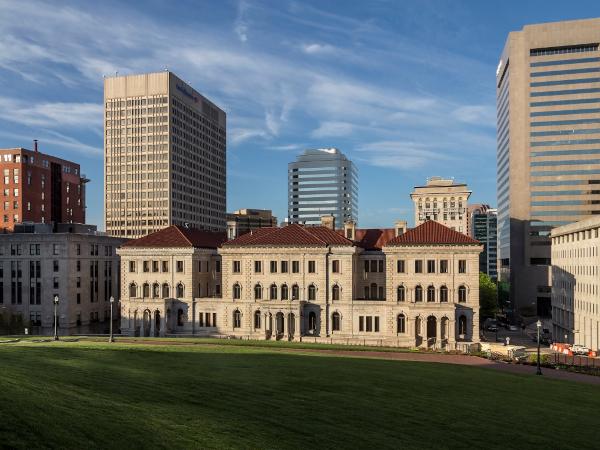
Date: 28 February 2024
As part of President Biden’s Investing in America agenda, the U.S. General Services Administration (GSA) recently awarded over $10 million to select windows made of low embodied carbon (LEC) glass to be featured in an existing renovation project at the Lewis F. Powell Jr. U.S. Courthouse and Annex buildings in Richmond, Virginia.
This investment under the Inflation Reduction Act (IRA) aims to expand America’s industrial capacity for manufacturing goods and materials of the future, tackle the climate crisis, and create good-paying jobs for workers in the region.
Vitro Architectural Glass is pleased to announce that its Solarban® 60 solar control low-e glass was selected by the GSA for the Powell Courthouse and Annex renovations. Solarban® 60 glass meets one of the limits (top 40%) established in GSA’s IRA Low Embodied Carbon Material Requirements for flat glass. Additionally, Solarban® 60 glass meets the courthouse’s efficiency, performance, and aesthetic needs while generating fewer emissions from manufacturing, with a third-party verified global warming potential (GWP) of 1,350 kilograms of carbon dioxide equivalent per metric ton, which is 6% lower than North America’s flat glass industry standard figure.
With its ability to transmit 70% of the available visible light while blocking 62% of the sun’s heat energy, Solarban® 60 glass offers year-round comfort for occupants, significant energy savings and a clear, color-neutral appearance.
“As the leading glass manufacturer in North America who consistently raises industry standards for sustainability and environmental performance, we are honored to be part of this endeavor to reduce carbon emissions and produce more energy-efficient spaces,” said Paul Bush, Vitro Architectural Glass vice president, Technical Services, Sustainability & Government Affairs. “Our family of Solarban® solar control low-e glasses offer clean, sustainable solutions, and most importantly, deliver a return on carbon by dramatically reducing the operational carbon of buildings every year of their lifespan.”
Vitro’s production teams have taken several significant steps to lower embodied carbon generated during glass production, which is challenging because flat glass manufacturing makes up more than 75% of the GWP of double-pane insulating glass units (IGUs). Strategies to lower embodied carbon include using batch material more efficiently, implementing furnace control systems to reduce the variability of melting temperatures and fuel consumption, adding low-NOx burners and variable frequency drives on cooling fans to reduce energy use, installing energy-efficient LED lighting and driving supplier improvements.
A highlight of these efforts is Vitro’s pioneering use of oxy-fuel technology at three plant locations in the U.S. Vitro’s patented oxy-fuel furnace technology melts glass raw materials such as sand and silica carefully, mixing pure oxygen (instead of air) with natural gas, significantly improving our energy and environmental performance. This technology and process reduces energy consumption in glass-melting furnaces by as much as 20%, cutting greenhouse gas emissions in half.
The Powell Courthouse and Annex renovation projects are among the first procurements of low embodied carbon construction materials under the Biden-Harris Administration’s Buy Clean Initiative. The federal government is, for the first time, prioritizing the purchase of asphalt, concrete, glass and steel that have lower levels of greenhouse gas emissions associated with their production, use and disposal.
Vitro recognizes additional partners: fabricator, United Plate Glass, wholesaler, Glass Distributors, Inc., and broker, BK Glass.
For more information about Vitro Architectural Glass products, visit www.vitroglazings.com or call 1-855-VTRO-GLS (887-6457).

 600450
600450












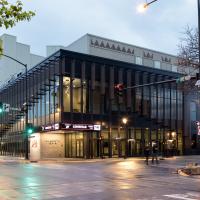


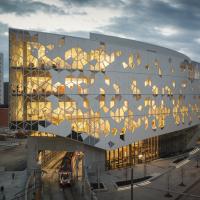
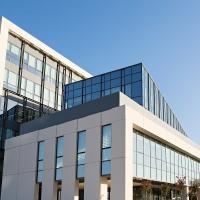
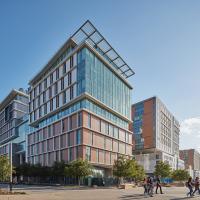
Add new comment